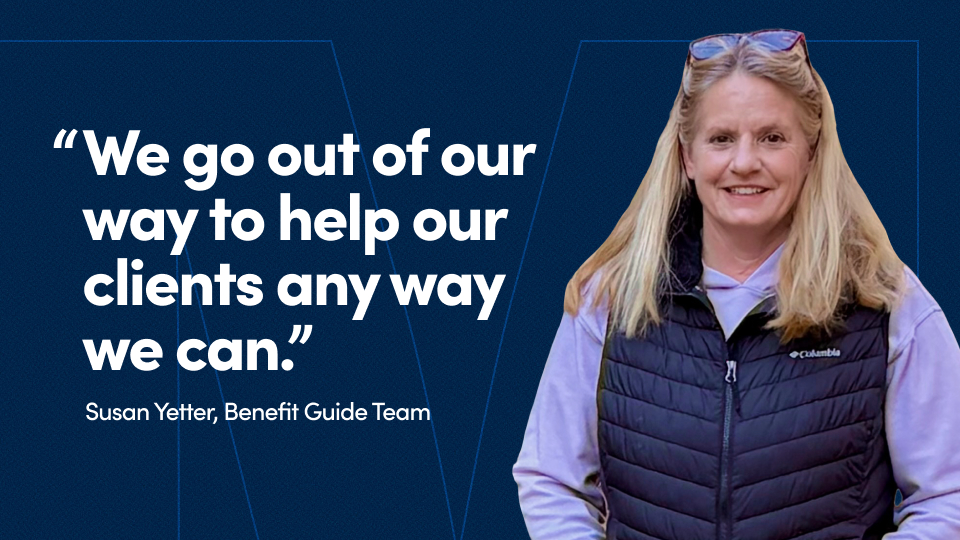Tips for Talking to Your Employees About Health Benefits

For many small business owners, offering health insurance to employees is both an exciting milestone and a major responsibility. Health benefits aren’t just about checking a compliance box, they’re one of the most important ways to attract top talent, retain employees, and show your team you care about their well-being.
But here’s the challenge: health insurance can feel overwhelming. Premiums, deductibles, provider networks—these terms don’t exactly make for light conversation around the breakroom. Still, clear and open communication about health benefits is essential for building trust with your employees and ensuring they make the most of their coverage.
If you’re wondering how to talk with your team about health insurance without confusing or overwhelming them, this guide is for you.
Why Talking About Health Benefits Matters
Before diving into the “how,” let’s talk about the “why.”
- Employee retention and recruitment – Health benefits are consistently ranked as one of the top factors employees look for in a job. If competitors are offering coverage and you’re not, you may risk losing talent—88% of workers consider wellness to be just as important as their salary (WellHub).
- Employee satisfaction and loyalty – Providing coverage sends a clear message: you value your employees not just as workers, but as people. This boosts morale and loyalty.
- Smarter decision-making – Having open conversations with employees about their healthcare needs helps you choose a plan that actually fits your team.
5 Tips for Talking to Your Employees About Health Insurance
1. Start With Transparency
Health insurance is full of moving parts, and employees want to understand what’s covered and what’s not. Be upfront about costs, provider networks, and coverage options. Even if you don’t have all the answers right away, letting your team know you’re committed to finding the right solution builds trust.
2. Ask Employees About Their Needs
Every workplace is unique, and so are employees’ healthcare needs. For example, some may only go to the doctor for annual checkups, while others require regular visits for chronic conditions. Consider asking employees questions such as:
- How often do you visit the doctor?
- What benefits are most important to you (e.g., preventive care, prescription coverage, dental/vision)?
- Would telehealth services be useful for you and your family?
This feedback gives you a clearer picture of what type of coverage matters most.
3. Keep It Simple and Avoid Jargon
Terms like “deductibles” and “coinsurance” can sound intimidating. Instead, use plain language when explaining benefits. For example:
- Instead of “out-of-pocket maximum,” say: “This is the most you’ll pay for covered healthcare in a year.”
- Instead of “preventive services,” say: “Checkups, screenings, and vaccines are fully covered.”
Your goal isn’t to make employees health insurance experts, it’s to give them confidence in their options.
4. Provide Resources Employees Can Reference Later
Even the clearest explanation can fade quickly after a meeting. Share written resources or digital guides that employees can review on their own time. This might include FAQs, a glossary of terms, or links to plan details.
Bonus tip: consider hosting a Q&A session where employees can anonymously ask questions they may feel uncomfortable bringing up in a group.
5. Position Yourself as a Partner, Not Just a Boss
Offering health insurance is more than just handing over a packet of options. It’s about showing your team you’re invested in their health. Let them know you’re open to ongoing feedback and that you’ll revisit coverage as your team (and the business) grows.
Common Questions to Ask (Yourself and Your Team)
When preparing for these conversations, here are a few key questions adapted from our Healthcare Readiness Checklist to guide your discussions:
Questions to ask yourself as a business owner:
- Am I losing employees or candidates to competitors because I don’t offer benefits?
- Would offering dental, vision, or supplemental coverage make my company more competitive?
- Do I need a partner to help me navigate benefits?
Questions to ask your employees:
- What benefits are most important to you? (e.g., dental, vision, hospitalization, low-cost deductibles)
- Do you prefer seeing a doctor in-person, or would telehealth services help you?
- Do you or your dependents require specialty prescriptions or ongoing care?
These questions will help you make informed decisions that align both with your employees’ needs and your business goals.
The Bottom Line: Communication Builds Confidence
For small business owners, offering health insurance can feel like a big leap. But remember: your employees don’t expect you to have all the answers right away. What they do want is honesty, clarity, and the reassurance that you’re committed to their well-being.
By being transparent, asking for input, and making benefits easy to understand, you’ll not only provide valuable coverage but also strengthen the trust and connection between you and your team.
Ready to Get Started?
Choosing the right health benefits doesn’t have to be complicated. At Meridio, we specialize in helping small business owners like you find affordable health coverage options that meet the needs of both your business and your employees.
👉 Download our free “Healthcare Readiness Checklist” to guide your next steps. Inside, you’ll find the most important questions to ask yourself and your employees before shopping for health benefits so you can make confident, informed decisions.




